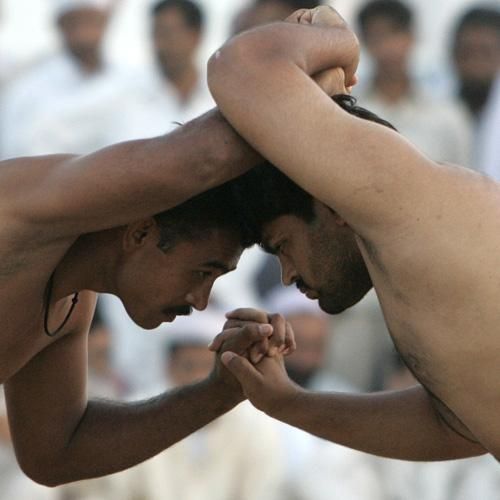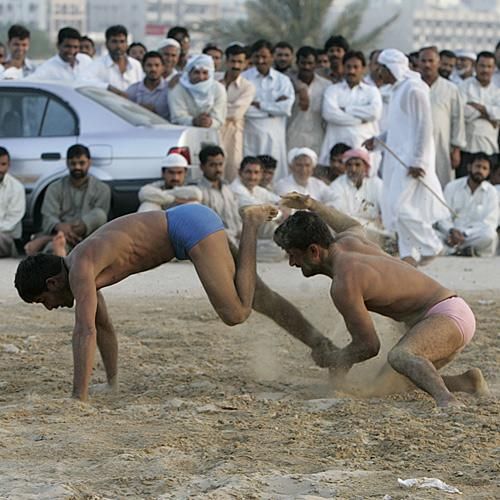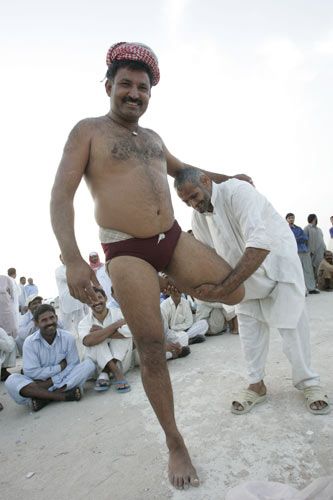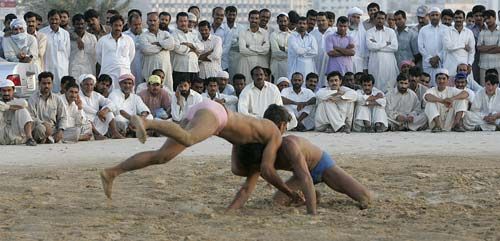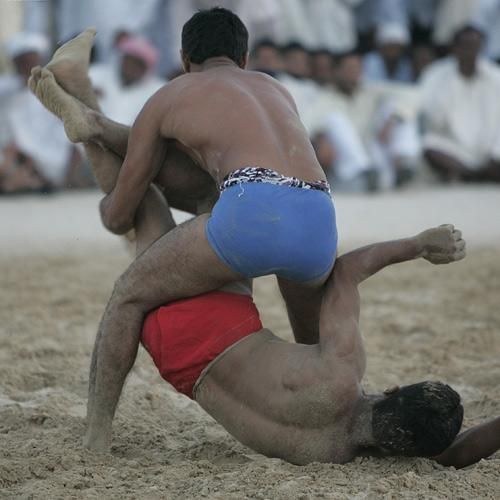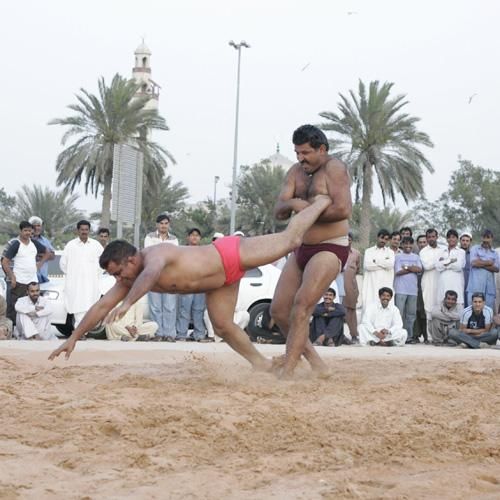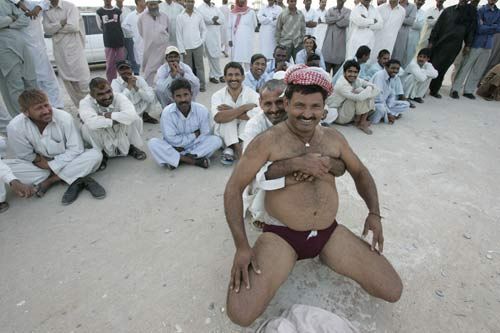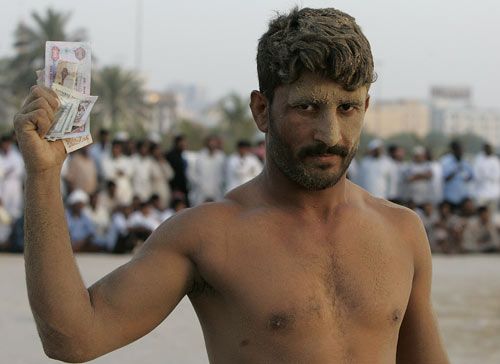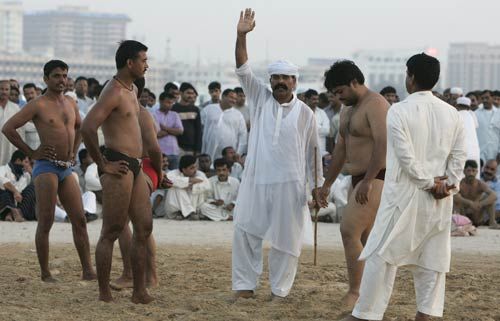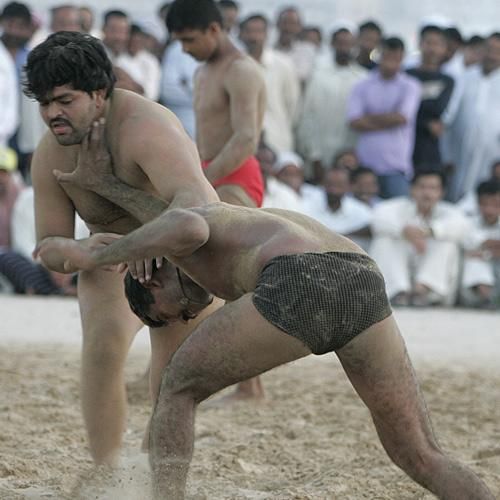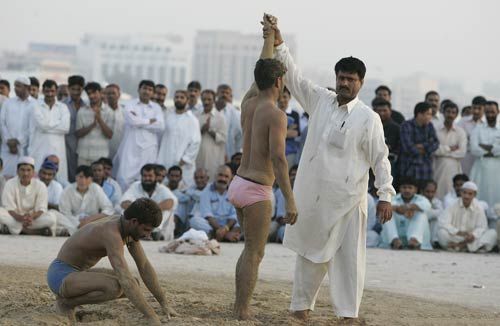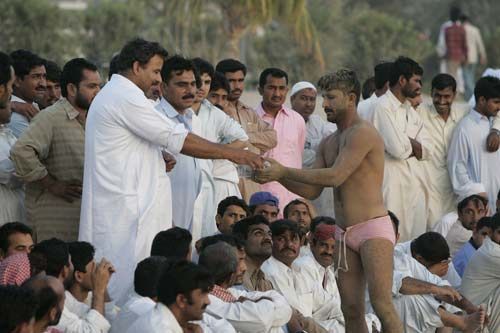When residents flock to Dubai's corniche every Friday for a relaxing stroll along the picturesque seaside, they don't expect to witness a full-scale brawl in progress.
But what looks like a scrap is an ongoing tournament of agile Kushti wrestlers gruelling it out on the sandy creek every weekend.
The group, mostly Pakistanis, have been drawing crowds for decades and will accept a duel from any challenger.
The makeshift arena behind Deira Fish Market is mainly home to disciples of Indo-Pak freestyle wrestling. Contenders struggle to pin their opponents' shoulders to the ground.
The matches are remarkably safe for a contact sport, said referee Mohammad Ilyas, a retired wrestler from Pakistan.
“Anyone can fight. People who choose to do so usually know a thing or two about the sport and its rules, but we're here to help in case they're new,'' Ilyas said.
“The sand is made wet so they don't get cut when they fall. If they step outside the area, I break the fight and they resume inside the wet sand in a similar position from where they left off.
“There's no blood or hostility. And it's perfectly legal. We've been doing this for about 25 years here with permission from the police.''
Opponents are matched according to weight, height and experience. But a smaller man is free to take on someone larger voluntarily.
“Mental tactics are just as important as force, if not more. You have to work yourself out of holds and ankle-locks; for that you need skill and not strength alone,'' said Ringmaster Haji Yar.
The wrestlers enter the damp ground wearing only briefs. They stretch and flex as Yar introduces them to an anxious audience. Then it comes down to staring your opponent in the eyes, staying on-guard against any attempts to pull you off your feet.
“A match lasts anywhere from five minutes to half an hour. When both shoulders are on the ground, it's over,'' said Ilyas. The referee signals a win by raising the victor's arm.
The victor circles the crowd, who throw him money – a winner can make between Dh50 and Dh300 a fight. The matches start almost two hours before sunset and end come nightfall. Ilyas estimates five to six matches take place every Friday.
There is no charge to attend, but it is good custom to give some money to the winners, the referee and the ringmaster. A first-time visitor to the event was impressed by the proceedings.
“This is great. You can learn a lot of moves by simply watching them wrestle,'' said Zaki Haider, a 30-year-old Pakistani jobseeker.
Bari Pishdadi, 31, a British businessman, said the audience should pay more to the wrestlers. “Come on, man! These guys are eating sand during the fight. It's hot and they're only here to thrill the audience. Dh10 is not enough for their talent,'' he said.
What Is Kushti?
It is a traditional form of wrestling popular in Pakistan, Iran and India. It incorporates interlocking the arms and using the torso and legs to fell the opponent. The idea is to flatten your opponent, making sure his upper back has touched the ground for a victory.
A dungal is a kushti match. It takes place on a spot of wet earth for safety and grip. Only grappling is fair game – punches, kicks and gouges are strictly forbidden. Coach Mohammad Ilyas says mastering the art depends on a person's drive and potential, and takes anywhere from six months to two years.


